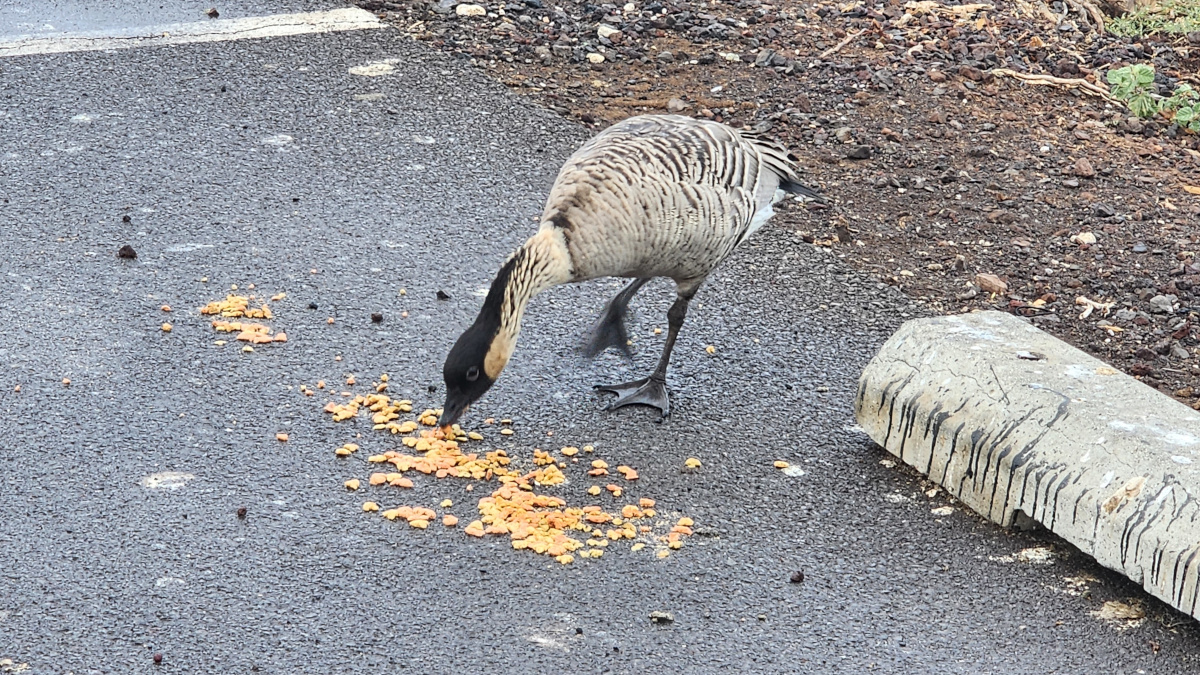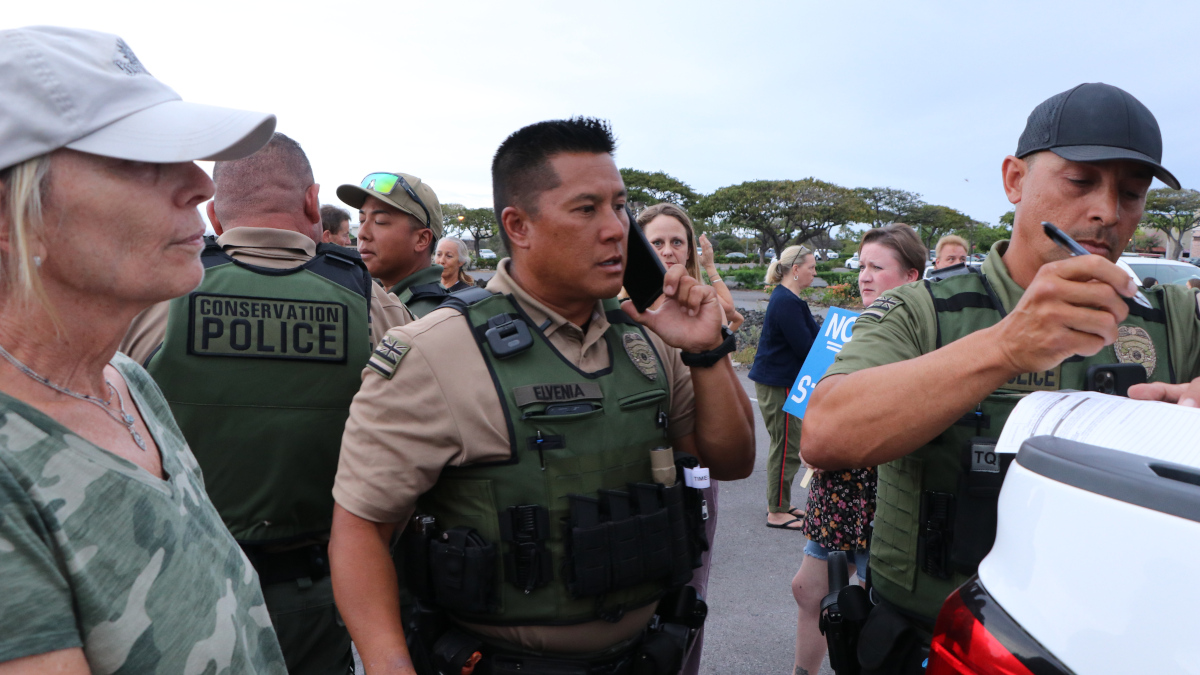(BIVN) – A week after the State ordered the removal of feral cat-feeding stations from the parking lot of a Waikoloa shopping center, and citations were written for those who protested the decision, the Chair of the Hawaiʻi Department of Land and Natural Resources met with cat advocates, DLNR reports.
From a Hawaiʻi DLNR news release:
At the direction of Governor Josh Green M.D., DLNR Chair Dawn Chang met today with the principals of ABayKitties, the organization that has provided cat food at a trio of feeding stations at the Queens’ Marketplace shopping center.
Last week, property owner Alexander & Baldwin (A&B) removed the feeders after learning that as many as a dozen nēnē (Hawaiian goose), were also eating cat food.
In Chair Chang’s meeting this morning with ABayKitties, she reiterated that DLNR is required by law to protect nēnē, an endangered species under state law, and a threatened species under the federal Endangered Species Act.
Chang explained when nēnē eat cat food, it can make them sick and can even kill them. Toxoplasmosis, a disease carried by cats, can also kill birds and critically endangered Hawaiian monk seals. Feral cats are among the most prolific predators of numerous near-extinct native forest birds.
Chang told ABayKitties that she appreciates their passion but pointed out that native Hawaiians, numerous conservation organizations, and many local residents strongly support the protection of nēnē and other native animals, birds, and mammals. Feeding wildlife like nēnē can ‘habituate’ them to being around people which leads to more frequent car strikes, and even the abduction of young birds, as happened in Hilo last month.
The DLNR shared some emails that were received in support of the State’s decision.
The news release continued:
While there have been no recent statewide surveys of the feral cat population, estimates put the number into the hundreds of thousands. On Hawai‘i Island, a 2021 survey of the nēnē population puts the number of birds at only 1,074. Statewide, the same survey indicated a population of 3,881.
Chang shared that DLNR will be ramping up education efforts so whole communities so they can be a part of protecting native species and figure out long-term solutions to give cats appropriate, safe, and loving indoor homes.
On April 11, during a protest by feral cat advocates, two women were cited for the illegal take of an endangered or threatened species. Those citations will require court appearances next month. Private property owners such as A&B have the right to decide what kinds of activities are permitted on their lands.
The DLNR Division of Forestry and Wildlife (DOFAW) is preparing informational flyers to distribute to property owners and individuals to educate people about how to avoid harming nēnē. The department has been in regular contact with area legislators who want to find a permanent solution and is also arranging meetings with Hawai‘i County and with humane societies, to work collaboratively.
Chair Chang has consistently stated, “This is not just a Waikoloa issue. This is not just a Hawai‘i Island issue. This is not an issue of lovers of feral cats versus lovers of native wildlife, so this is a problem without easy or readily identifiable solutions. Our mission is to protect Hawai‘i’s unique and precious wildlife. We take that seriously and to heart. While we have compassion for all living creatures, our singular mission is to protect our native threatened and endangered species from all threats.”



by Big Island Video News6:45 am
on at
STORY SUMMARY
WAIKOLOA, Hawaiʻi - Chair Dawn Chang met with the principals of ABayKitties, the organization that has been supplying cat feeding stations at the Queens’ Marketplace shopping center.